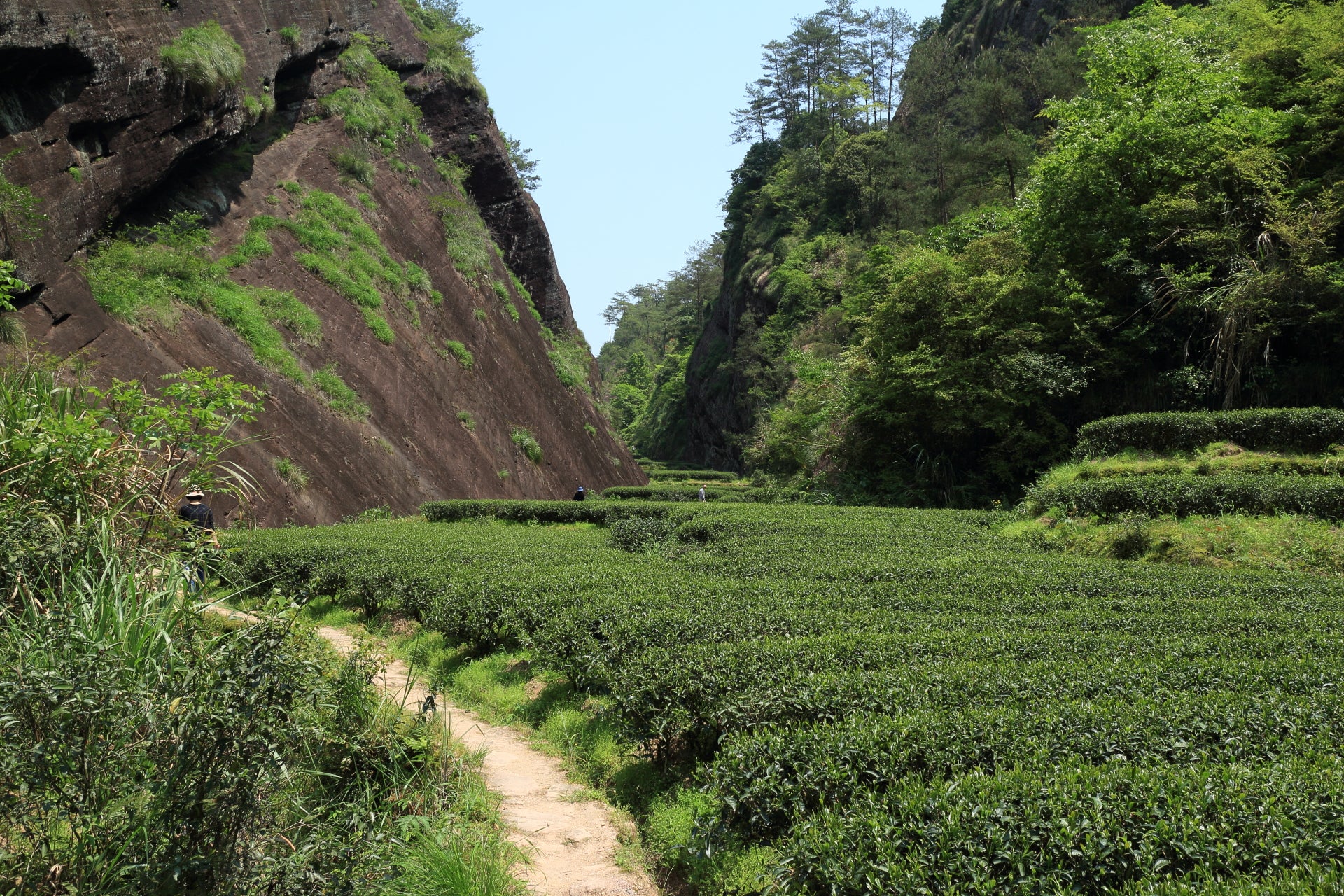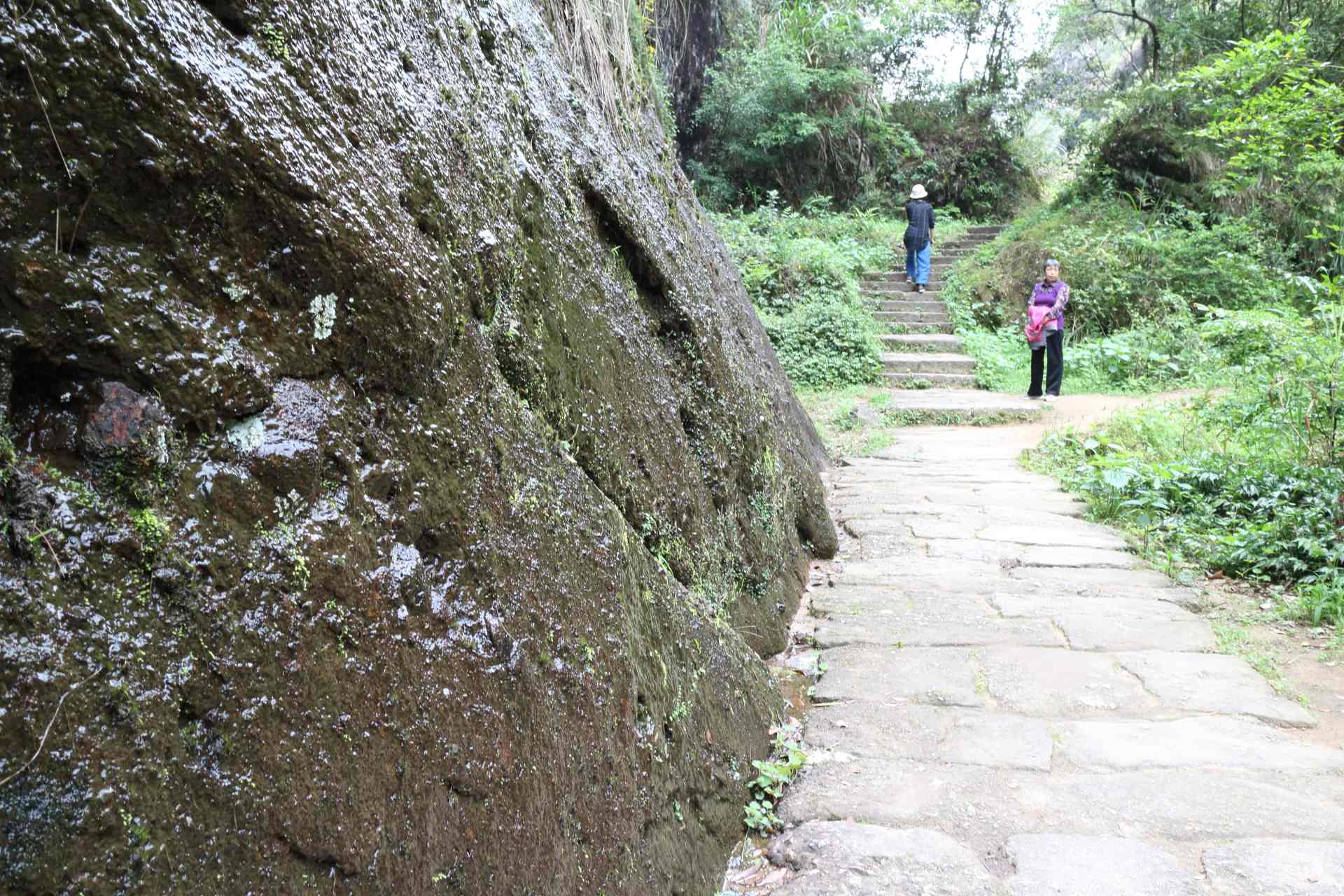Matouyan Tieluohan
Grown amongst the striking landscape of Matouyan, this is Tieluohan as it was meant to be: the 'iron Arhat' sweeps through the mouth in moving meditation, the signature pear taste emerging in the nose, then in an acidic touch on the tongue; the liquor soft, the astringency a caress of the palate. Traces of the roasting appear as nuttiness and an aftertaste of good milk chocolate, but the maker has engendered a floral side as well, suggesting lavender and elderflower. A beautiful and relaxing tea, one for the highest peaks and deepest calms.
- ORIGIN: Matouyan, Wuyishan, Nanping, Fujian, China
- MEANING: Horse head cliff iron Arhat (ma tou yan tie luo han)
- CULTIVAR: Tieluohan
- HARVEST TIME: May 2021
- TASTE: Pear, elderflower, milk chocolate
IN THE TEAPOT
- Quantity: 6g / 500ml
- Water temperature: 90°C
- Infusion time: 5 min
GONGFU CHA METHOD
- Quantity: 3g / 100ml
- Water temperature: 90°C
- 4 infusions: 45, 60, 60, 90 sec
For best results in gongfu cha, brew in the traditional gaiwan or in a Yixing teapot. Too high water temperature would burn the leaves, resulting in bitter taste.
Additional Information
Authentic Wuyi Yan Cha is produced in the Wuyi Mount region, a UNESCO natural heritage site. The dramatic gorges of the Nine Bend River are surrounded by a largely intact subtropical forest and smooth cliffs of black-brownish rocks. The tea plants grow in narrow valleys, next to the cliffs, in a mineral-rich soil.
Tea leaves have been processed here for at least a thousand years. From the 11th to 16th centuries, when Oolong tea was yet to be invented, there was an imperial tea farm on the mountains, producing green tea for the imperial court. Oolong production was boosted in the 17th century thanks to the great export demand from Europe. At that time, Wuyi was known in England as “Bohea,” and the tea imported from this region was labeled black tea. Note that black tea, as we know it today, was created centuries later.
Today Wuyi Yan Cha is one of the most valued teas in China. Because it has become a status symbol, many wealthy Chinese are willing to pay a fortune for it without even knowing how a proper Wuyi Yan Cha should taste. The result has been prices inflating to unjustified level and quality often sacrificed for quantity.
Unique to the Wuyi Yan Cha is a mineral savor coming from the soil and the surrounding cliffs. Being the oolong with the highest fire finish, fresh Yan Cha may as a result be strong and pungent. Sharpness and too-prominent astringency subside upon ageing. Premium high-fire Yan Cha tastes better after a few years of storage. Use a Yixing teapot to soften the tea, should it be too astringent for your palate.
The overall tasting profile is rich, complex, and deep. Depending on cultivar and environment, the mineral-roasted flavor is refined by floral, fruity, nutty or woody accents.
Today Wuyi Yan Cha is one of the most valued teas in China. Because it has become a status symbol, many wealthy Chinese are willing to pay a fortune for it without even knowing how a proper Wuyi Yan Cha should taste. The result has been prices inflating to unjustified level and quality often sacrificed for quantity.
Unique to the Wuyi Yan Cha is a mineral savor coming from the soil and the surrounding cliffs. Being the oolong with the highest fire finish, fresh Yan Cha may as a result be strong and pungent. Sharpness and too-prominent astringency subside upon ageing. Premium high-fire Yan Cha tastes better after a few years of storage. Use a Yixing teapot to soften the tea, should it be too astringent for your palate.
The overall tasting profile is rich, complex, and deep. Depending on cultivar and environment, the mineral-roasted flavor is refined by floral, fruity, nutty or woody accents.








